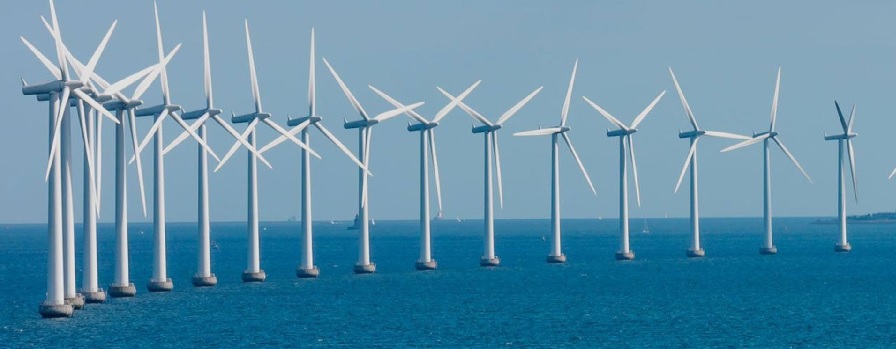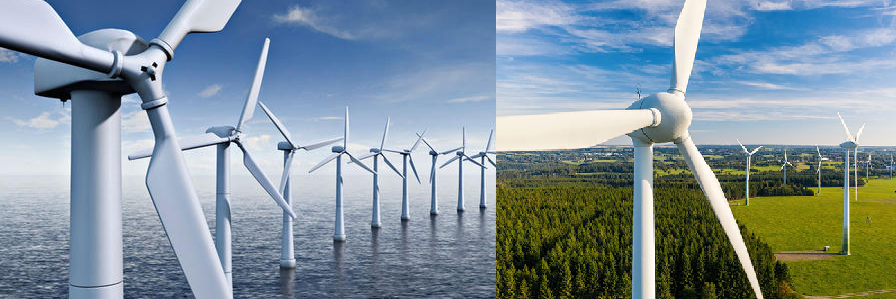
How to Write a Wind Power Business Plan for Nigerians:
How to Write a Wind Power Business Plan for Nigerians: This is a bankable Wind Power Business Plan for Nigerians. So, do you want to invest in wind power in Nigeria? This is the start-up business plan for it.
In fact, in light of the increasing global focus on sustainable energy solutions, there is a growing opportunity for Nigerians to capitalize on the potential of wind power. With its abundant wind resources and a pressing need to diversify the energy mix, Nigeria stands at the threshold of an exciting venture into the wind power sector.
This business plan aims to outline a comprehensive strategy for Nigerians interested in establishing a successful wind power enterprise. By harnessing the power of the wind, this plan not only promises lucrative returns but also contributes to a cleaner and more sustainable future for the nation. Get How to Write a Wind Power Business Plan for Nigerians:
Contents
- 1 Why Read This Article:
- 1.1 What makes Wind Power Business lucrative in Nigeria:
- 1.2 Start-up Process for Wind Power Business Plan in Nigeria:
- 1.3 Types of Business Plans: How to Write a Wind Power Business Plan for Nigerians:
- 1.4 SWOT Analysis for Wind Power Business in Nigeria:
- 1.5 Cessummit business plan for Wind Power Business in Nigeria:
- 1.6 Read More: How to Write a Wind Power Business Plan for Nigerians:
- 1.7 Summing Up: How to Write a Wind Power Business Plan for Nigerians:
- 1.8 Share this:
- 1.9 Like this:
Why Read This Article:
There are reasons why we present this article: Wind Power Business Plan for Nigerians: The reasons are here.
Addressing Energy Challenges:
Nigeria faces significant energy challenges, including inadequate power supply, frequent blackouts, and heavy reliance on fossil fuels. Introducing wind power can help alleviate these issues by providing a reliable and renewable source of electricity, reducing dependence on traditional energy sources, and enhancing energy security for businesses and households.
The Abundance of Wind Resources – How to Write a Wind Power Business Plan for Nigerians:
Nigeria is blessed with vast wind resources, particularly along its coastal areas and in the northern regions. The country’s unique geographical location and topography offer excellent potential for harnessing wind energy on a large scale. By tapping into this abundant resource, Nigerians can unlock a clean and sustainable energy solution while maximizing their economic potential.
Economic Opportunities:
Developing a wind power business in Nigeria presents significant economic opportunities. It can generate new jobs, attract foreign investments, and stimulate local industries involved in the manufacturing, installation, and maintenance of wind turbines. Furthermore, a thriving wind power sector can contribute to the overall economic growth of the country and create a sustainable market for related goods and services.
Environmental Sustainability: How to Write a Wind Power Business Plan for Nigerians:
Wind power is a clean and renewable energy source that produces zero greenhouse gas emissions during operation. By embracing wind power, Nigerians can actively contribute to mitigating climate change, reducing air pollution, and preserving the environment for future generations. This aligns with global sustainability goals and positions Nigeria as a responsible and environmentally conscious nation.
Government Support and Incentives:
The Nigerian government recognizes the importance of renewable energy and has implemented policies and incentives to encourage its development. Various financial incentives, tax benefits, and regulatory frameworks exist to support wind power projects. By capitalizing on these government initiatives, entrepreneurs can establish a wind power business with favorable conditions and increased chances of success. This is How to Write a Wind Power Business Plan for Nigerians:
In conclusion, presenting this Wind Power Business Plan for Nigerians aims to highlight the compelling reasons to invest in wind power in Nigeria. By addressing energy challenges, leveraging abundant wind resources, unlocking economic opportunities, promoting environmental sustainability, and capitalizing on government support, Nigerians can embark on a profitable and impactful journey toward a sustainable energy future.
What makes Wind Power Business lucrative in Nigeria:
The Wind Power Business presents lucrative opportunities in Nigeria for several reasons:
Energy Demand and Market Potential:
Nigeria has a significant energy demand due to its large population and expanding economy. With the existing energy challenges and the need for a reliable power supply, the market potential for wind power is substantial. By establishing a wind power business, you can tap into this growing market and meet the increasing demand for electricity, creating a reliable revenue stream. This is How to Write a Wind Power Business Plan for Nigerians:
Cost-Effectiveness:
Wind power has become increasingly cost-effective over the years. The cost of wind turbines and related technologies has decreased significantly, making it a competitive option compared to conventional energy sources. Implementing wind power projects can result in long-term cost savings, providing a lucrative return on investment and ensuring the sustainability of the business.
Feed-in Tariffs and Incentives:
The Nigerian government offers attractive feed-in tariffs and incentives for renewable energy projects, including wind power. These financial incentives provide a guaranteed payment for the electricity generated from wind turbines, ensuring a steady income stream for your business. Additionally, tax breaks, grants, and other support mechanisms further enhance the profitability of wind power ventures.
Reduced Operational Costs:
Wind power has relatively low operational costs once the initial infrastructure is in place. Unlike fossil fuel-based power plants, wind turbines do not require continuous fuel purchases, resulting in reduced fuel costs and price volatility risks. With proper maintenance and efficient operations, ongoing expenses can be minimized, enhancing the profitability of the business. This is How to Write a Wind Power Business Plan for Nigerians:
Scalability and Portfolio Diversification:
Wind power projects can be easily scaled up as demand grows. By expanding your wind power business, you can increase the generation capacity and serve a larger customer base, thus maximizing profitability. Additionally, diversifying your energy portfolio with wind power reduces the reliance on a single energy source, mitigating potential risks and enhancing the stability and long-term viability of the business.
International Investment and Partnerships:
Nigeria’s wind power sector presents opportunities for international investment and partnerships. Global investors and organizations are increasingly interested in supporting renewable energy projects in emerging markets. Collaborating with international entities can bring additional expertise, funding, and access to advanced technologies, which can further enhance the profitability and competitiveness of your wind power business. Rad more about How to Write a Wind Power Business Plan for Nigerians:
Overall, the combination of a growing energy market, cost-effectiveness, government support, reduced operational costs, scalability, and potential for international investment makes the Wind Power Business Plan lucrative in Nigeria. By seizing these opportunities, entrepreneurs can establish a profitable and sustainable businesses while contributing to the country’s energy transition and economic development.

Start-up Process for Wind Power Business Plan in Nigeria:
Starting a wind power business in Nigeria involves several key steps. Here is a general outline of the start-up process:
Research and Feasibility Study on How to Write a Wind Power Business Plan for Nigerians:
Conduct thorough research on wind resources in potential locations, analyze market demand, and assess the financial viability of the project. Engage with experts, consultants, and relevant stakeholders to gather essential data and insights for an informed decision-making process.
Business Plan Development:
Create a comprehensive business plan that outlines your goals, strategies, financial projections, and implementation timeline. Include details on project development, operations, marketing, financing, and risk management. The business plan will serve as a roadmap and a document to attract potential investors or secure financing. Get your copy – This is How to Write a Wind Power Business Plan for Nigerians:
Secure Financing:
Identify potential funding sources for your wind power project. Explore options such as government grants, development banks, venture capital, private equity, or partnerships with international investors. Prepare a detailed financial model to demonstrate the project’s profitability and potential returns to attract investors or secure loans.
Obtain Necessary Permits and Licenses: This is How to Write a Wind Power Business Plan for Nigerians:
Familiarize yourself with the regulatory requirements for wind power projects in Nigeria. Obtain the necessary permits, licenses, and approvals from relevant government agencies, such as the Nigerian Electricity Regulatory Commission (NERC) and the Ministry of Power. Ensure compliance with environmental regulations, land use permits, and grid connection agreements.
Site Selection and Land Acquisition:
Identify suitable sites with favorable wind conditions and access to necessary infrastructure, such as transmission lines. Conduct site assessments, environmental impact assessments, and land surveys. Acquire land rights through lease agreements or purchases, ensuring legal clarity and long-term tenure for your wind power project.
Technology Procurement and Equipment Installation:
Source and procure wind turbines, related equipment, and necessary infrastructure from reputable suppliers. Consider factors such as turbine capacity, efficiency, maintenance requirements, and warranties. Engage experienced contractors for the installation and commissioning of the wind turbines, ensuring compliance with safety standards and best practices. This is How to Write a Wind Power Business Plan for Nigerians:
Grid Connection and Power Purchase Agreements:
Engage with the relevant power distribution company or the Nigerian Bulk Electricity Trading Plc (NBET) to negotiate power purchase agreements (PPAs) and secure grid connection. Ensure clarity on pricing, payment terms, and contract duration. Collaborate with the transmission and distribution network operators for seamless integration into the existing power infrastructure.
Operations and Maintenance: How to Write a Wind Power Business Plan for Nigerians:
Establish a robust operations and maintenance plan to ensure the optimal performance and longevity of your wind power assets. Develop a preventive maintenance schedule, train personnel, and implement monitoring systems to detect any operational issues promptly. Regularly inspect and service the turbines to maximize energy production and minimize downtime.
Marketing and Customer Acquisition:
Develop a marketing strategy to attract potential customers, such as industrial and commercial entities, utilities, and government agencies. Showcase the environmental and economic benefits of wind power, highlighting the reliability, cost-effectiveness, and sustainability of your offerings. Network with key industry players and participate in relevant conferences and exhibitions to build your brand and establish partnerships.
Continuous Monitoring and Improvement: How to Write a Wind Power Business Plan for Nigerians:
Regularly monitor the performance and efficiency of your wind power project. Analyze energy production data, identify areas for improvement, and implement strategies to optimize output and reduce operational costs. Stay updated with technological advancements and industry trends to remain competitive and adapt to changing market dynamics.
Remember that the wind power business start-up process may vary depending on specific project characteristics and regulatory requirements. It is advisable to seek professional advice and collaborate with industry experts throughout the journey to ensure a successful and profitable venture.
Types of Business Plans: How to Write a Wind Power Business Plan for Nigerians:
- Strategic plans for scaling up business
- Operational/internal plans,
- Comprehensive business plan
- Business plan executive summary
- Business Plan Financial Analysis Segment
SWOT Analysis for Wind Power Business in Nigeria:
SWOT analysis is a useful tool for evaluating the strengths, weaknesses, opportunities, and threats of a wind power business in Nigeria. Here’s a SWOT analysis specific to the wind power sector in Nigeria:
Strengths: This is How to Write a Wind Power Business Plan for Nigerians:
Abundant Wind Resources: Nigeria possesses significant wind energy potential, particularly along its coastal areas and in the northern regions. The availability of strong and consistent wind resources is a major strength for establishing a wind power business.
Renewable and Clean Energy Source: Wind power is a renewable and clean energy source that aligns with global sustainability goals. It offers an environmentally friendly alternative to fossil fuels, reducing greenhouse gas emissions and air pollution.
Government Support: The Nigerian government has demonstrated support for renewable energy projects, including wind power, through policies, incentives, and regulatory frameworks. This support creates a favorable business environment and provides opportunities for financial assistance and market integration.
Diversification of Energy Mix: Nigeria heavily relies on fossil fuels for its energy needs. The introduction of wind power allows for diversification of the energy mix, reducing dependence on traditional energy sources and enhancing energy security.
Weaknesses: This is also How to Write a Wind Power Business Plan for Nigerians:
Grid Infrastructure Challenges: Nigeria’s electricity grid infrastructure faces challenges such as limited transmission capacity, distribution losses, and inadequate grid stability. These weaknesses can impact the reliable integration and evacuation of wind power into the grid.
Initial Investment and Financial Constraints: Establishing a wind power business requires a significant upfront investment. Accessing appropriate financing options and overcoming financial constraints may pose challenges, particularly for start-ups and smaller enterprises.
Opportunities: This is too How to Write a Wind Power Business Plan for Nigerians:
Increasing Energy Demand: Nigeria’s growing population and expanding economy result in rising energy demand. The wind power sector can capitalize on this opportunity by providing a clean and reliable source of electricity to meet the increasing energy needs of businesses and households.
Job Creation and Economic Growth: Developing the wind power sector in Nigeria can stimulate economic growth by creating job opportunities in manufacturing, installation, operations, maintenance, and associated industries. This sector can contribute to local employment and boost economic development.
International Collaboration and Investments: Nigeria’s wind power sector presents opportunities for international collaboration, partnerships, and investments. Global investors and organizations are increasingly interested in supporting renewable energy projects in emerging markets, creating avenues for knowledge transfer, funding, and technology adoption.
Threats:
Policy and Regulatory Uncertainty: Changes in government policies, regulations, or feed-in tariff schemes can create uncertainties for wind power projects. Inconsistent policies or delays in decision-making processes may pose challenges for investors and project developers. This is How to Write a Wind Power Business Plan for Nigerians:
Infrastructure Limitations: The wind power sector requires adequate infrastructure, including transmission lines, substations, and grid connections. Insufficient infrastructure and delays in grid expansion can hinder the development and integration of wind power projects.
Market Competition: As the wind power sector in Nigeria grows, increased competition may arise from both local and international players. To succeed, businesses need to differentiate themselves through innovative technologies, competitive pricing, and strong project execution.
It’s important to note that the SWOT analysis should be regularly reviewed and updated as market conditions and circumstances evolve. By understanding these internal and external factors, wind power businesses in Nigeria can capitalize on strengths, mitigate weaknesses, seize opportunities, and proactively address threats to ensure long-term success.
Cessummit business plan for Wind Power Business in Nigeria:
The Cessummit Wind Power Business Plan for Nigeria offers a comprehensive and detailed approach to establishing a successful wind power business in the country. Our plan encompasses key aspects such as market analysis, financial projections, project development, operations, and marketing strategies. With our expertise and knowledge of the Nigerian wind power sector, we aim to assist aspiring entrepreneurs in navigating the complexities of this industry and maximizing their chances of success.
For further inquiries or to access our business plan services, you can reach out to us via email at [email protected] or contact us directly at 09053130518. Our team of professionals is ready to provide personalized guidance and support to help you turn your wind power business vision into a reality. Rad more about How to Write a Wind Power Business Plan for Nigerians:
By partnering with Cessummit, you gain access to our extensive network, industry insights, and a tailored approach to suit your specific business needs. We understand the unique challenges and opportunities in the Nigerian wind power market, and our goal is to assist you in developing a robust and profitable business model.
Whether you are a seasoned entrepreneur or new to the renewable energy sector, Cessummit is committed to providing you with the tools and expertise required to thrive in the wind power industry in Nigeria. Contact us today to take the first step toward a successful wind power venture. That is How to Write a Wind Power Business Plan for Nigerians:

Read More: How to Write a Wind Power Business Plan for Nigerians:
- The 5th type of business plan
- The 4 and 5 types of business plan
- Other types of business plan
- Steps in Developing a business plan
- How to use 4 types of business plans
- 3-types of business plan
- The best type of business plan
Furthermore, here are some types of business plans you may need;
- A one-page plan/pitch – for presentation or self/family considerations
- Working business plan – for administrative purposes
- Bankable business plan – this is to seek investors or loan facilities.
Summing Up: How to Write a Wind Power Business Plan for Nigerians:
Yes, all you need to know about Wind Power Business Plans for Nigerians is here. So, in conclusion, the Wind Power Business Plan for Nigerians presents a compelling opportunity to harness the abundant wind resources in Nigeria and contribute to the country’s energy transition. By establishing a wind power business, you can address energy challenges, capitalize on economic opportunities, promote environmental sustainability, and benefit from government support and incentives.
With our comprehensive approach and expertise in the Nigerian wind power sector, we are dedicated to helping entrepreneurs navigate the complexities of this industry and achieve success. Embrace the potential of wind power, join the clean energy revolution, and together let us build a sustainable and prosperous future for Nigeria. Now bookmark How to Write a Wind Power Business Plan for Nigerians: and share with our social media handles. Try to like us too.






